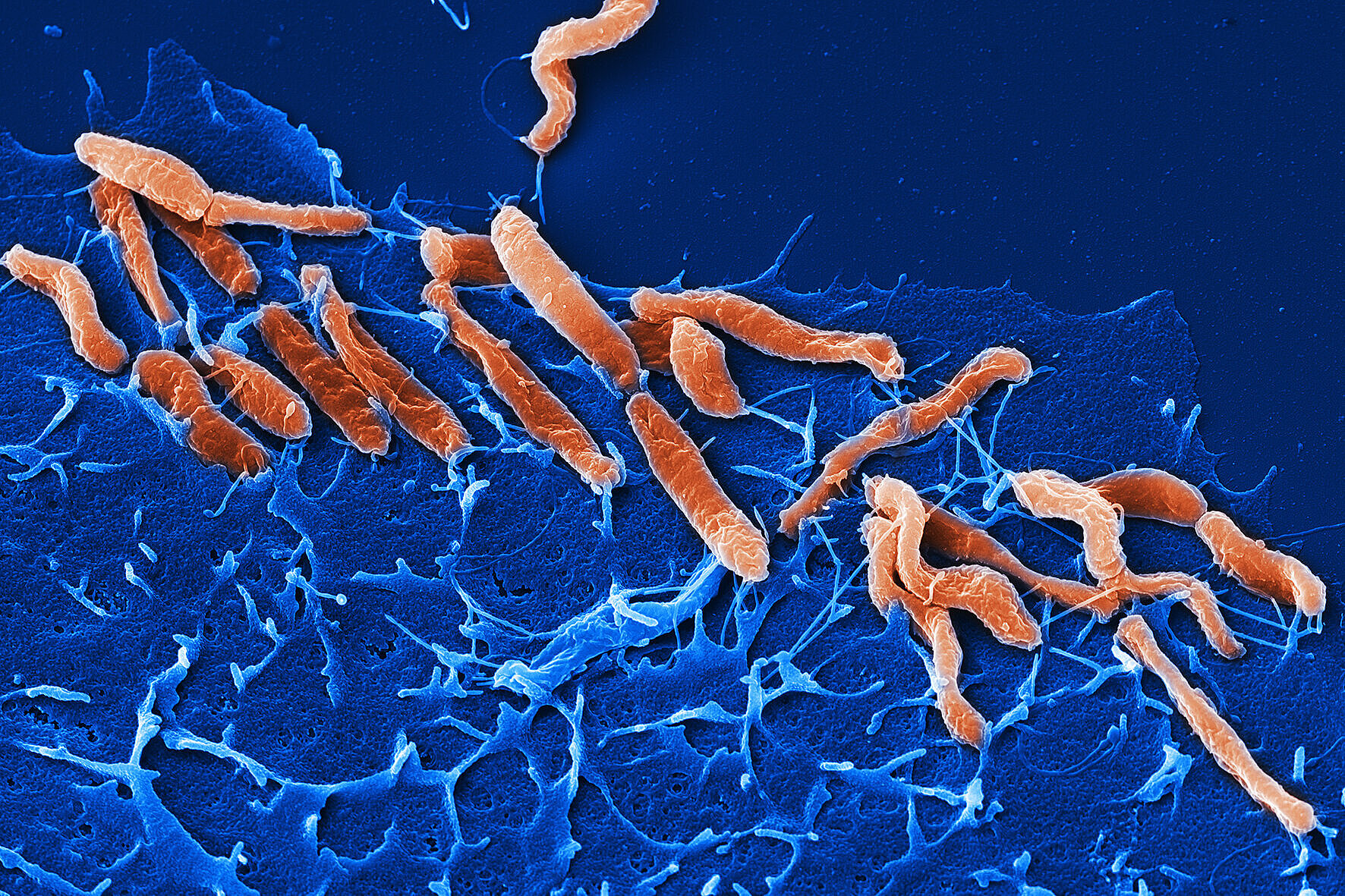Against this backdrop, the Technical University of Munich (TUM) coordinates the project Vax2Muc (“Next generation vaccines against gastrointestinal mucosal pathogens, using helicobacter pylori as a model pathogen”), an international and interdisciplinary research collaboration that sets out to develop improved, innovative, next generation subunit vaccines effective against diseases caused by AMR mucosal pathogens colonising the gastrointestinal tract. Over the next five years, the project will receive more than 8.4 million Euro funding from the European Union’s research programme Horizon Europe.
The international research team led by Prof Markus Gerhard (TUM) will develop, as a proof-of-concept, a prophylactic H. pylori vaccine candidate that will be evaluated in a phase I clinical trial. Moreover, it will advance GMP manufacturing, investigate and progress novel vaccine technologies and strategies for optimised mucosal immunity in the gastrointestinal tract.
The Helmholtz Centre for Infection Research (HZI) will be involved in developing the mucosal vaccination strategy, as well as performing studies in mice to define the correlates of immunogenicity and protection of the vaccine candidates. “The HZI’s proprietary adjuvant c-di-AMP will be one of two adjuvants tested as a component of the vaccine,” says Prof Carlos A. Guzmán, head of the Department of Vaccinology and Applied Microbiology at the HZI. In addition to that, the HZI will participate in conducting the immune monitoring of the exploratory endpoints of the samples from the phase I clinical trial. Guzmán adds: “The cutting edge innovative technologies and multidisciplinary approach fostered by our consortium will be instrumental for achieving our ambitious goals.”
The Vax2Muc consortium includes world-leading institutions that are perfectly placed to evaluate such new technologies with the potential to close existing gaps in the prevention of bacterial infections. Besides the TUM and the HZI, the consortium includes experts from (in alphabetical order): Faculdade De Farmácia Da Universidade De Lisboa, InStar Technologies a.s., IRTA Institute of Agrifood Research and Technology, Statens Serum Institut, Trinity College Dublin, Universiteit Antwerpen, University of Strathclyde.


